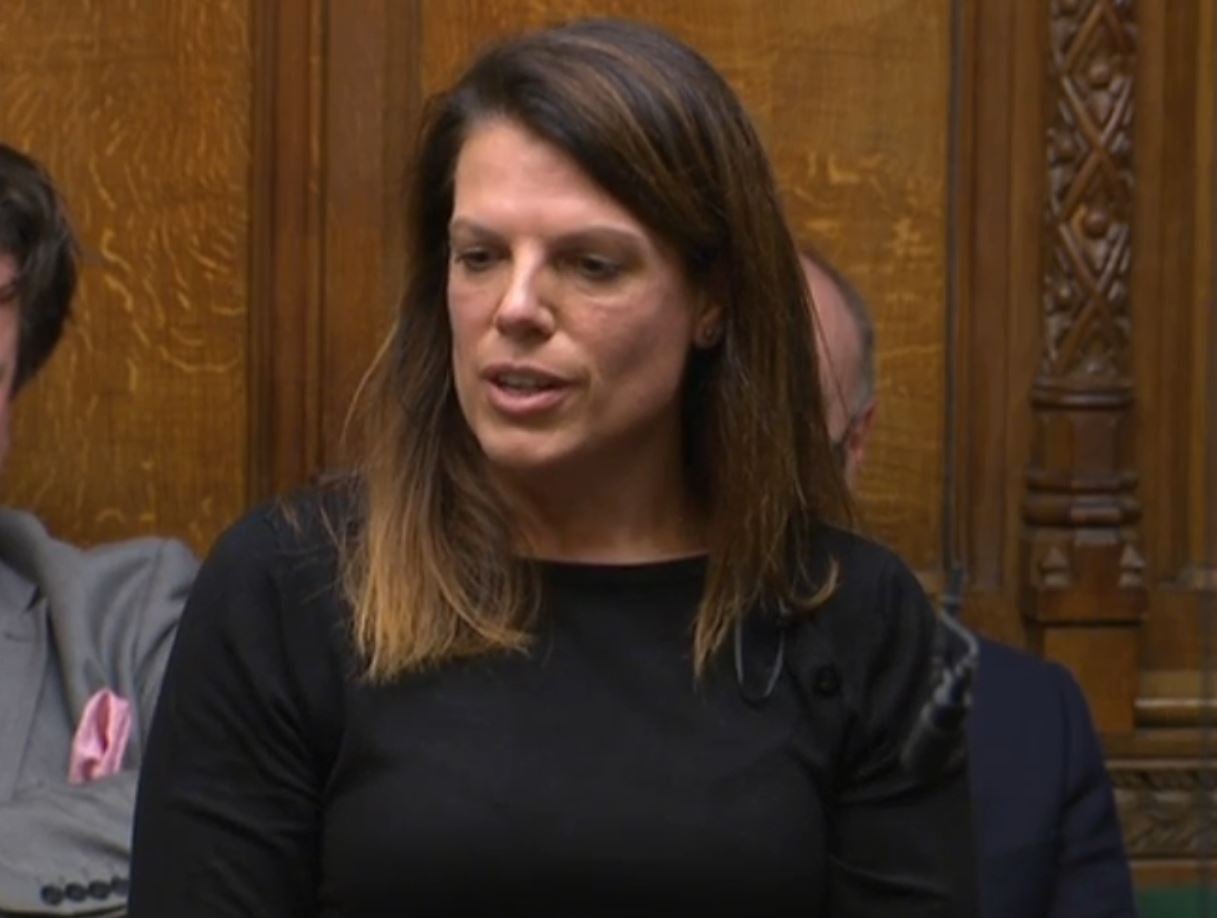
Parliament must consider overhauling the “out-of-date” law used to jail a mother-of-three who illegally obtained abortion tablets to end her pregnancy during lockdown, a senior Tory has said.
Caroline Nokes, chairwoman of the Commons Women and Equalities Committee, joined women’s rights groups in calling for reform to the 1861 legislation used to prosecute Carla Foster.
The 44-year-old was given a 28-month extended sentence after she admitted illegally procuring her own abortion when she was between 32 and 34 weeks pregnant.
Abortions are generally only legal before 24 weeks and are carried out in clinics after 10 weeks of pregnancy.
Have you been affected buy this story? If so email tara.cobham@independent.co.uk
Stoke-on-Trent Crown Court heard Foster was sent the drugs by the British Pregnancy Advisory Service (BPAS) after she lied about how far along in her pregnancy she was during 2020’s pandemic lockdown.
The prosecution said Foster made a number of internet searches between February and May 2020, including “how to hide a pregnancy bump”, “how to have an abortion without going to the doctor” and “how to lose a baby at six months”.
Foster was initially charged with child destruction and pleaded not guilty.
She later pleaded guilty to an alternative charge of section 58 of the Offences Against the Person Act 1861, administering drugs or using instruments to procure abortion, which was accepted by the prosecution.
The sentencing has prompted a backlash.
Ms Nokes told BBC Radio 4’s World Tonight programme: “This is not something that has been debated in any great detail for many years now.
“And cases like this, although tragic and fortunately very rare, do throw into stark relief that we are reliant on legislation that is very, very out of date.
“I think that makes a case for Parliament to start looking at this issue in detail.”

Centre for Women’s Justice director Harriet Wistrich questioned how the prosecution was in the public interest.
“What possible purpose is served in criminalising and imprisoning this woman, when at most she needs better access to healthcare and other support?” she said.
“She is clearly already traumatised by the experience and now her children will be left without their mother for over a year.
“When most forms of violence against women and girls go unpunished this sentence confirms our very worst fears about contemporary attitudes to women’s basic human rights and an utterly misdirected criminal justice system.”
Women’s human rights programme director at Amnesty International UK Chiara Capraro said the decision to prosecute was “shocking and quite frankly terrifying”.
“This is a tremendously sad story and underscores the desperate need for legal reform in relation to reproductive health,” she said.
BPAS chief executive Clare Murphy said “no woman can ever go through this again” and called for MPs to protect women in desperate circumstances so they are never threatened with prison.
“Vulnerable women in the most incredibly difficult of circumstances deserve more from our legal system,” she said.
The Crown Prosecution Service said the case was “complex and traumatic”, but said it has a duty to ensure laws are “properly considered and applied when making difficult charging decisions”.
The court heard Foster, who had three sons before becoming pregnant again in 2019, did not see a doctor about her pregnancy because she was “embarrassed” and did not know how far along she was.
She spoke to a BPAS nurse practitioner in May 2020 and was sent abortion pills in the post after it was determined she was only around seven weeks pregnant based on her answers.
A post-mortem examination determined the child was between 32 and 34 weeks’ gestation when born.
Her cause of death was recorded as stillbirth and maternal use of abortion drugs.
Foster will serve 14 months in custody and the remainder on licence after her release.
Sentencing judge Mr Justice Pepperall said: “This case concerns one woman’s tragic and unlawful decision to obtain a very late abortion.
“The balance struck by the law between a woman’s reproductive rights and the rights of her unborn foetus is an emotive and often controversial issue. That is, however, a matter for Parliament and not for the courts.”







